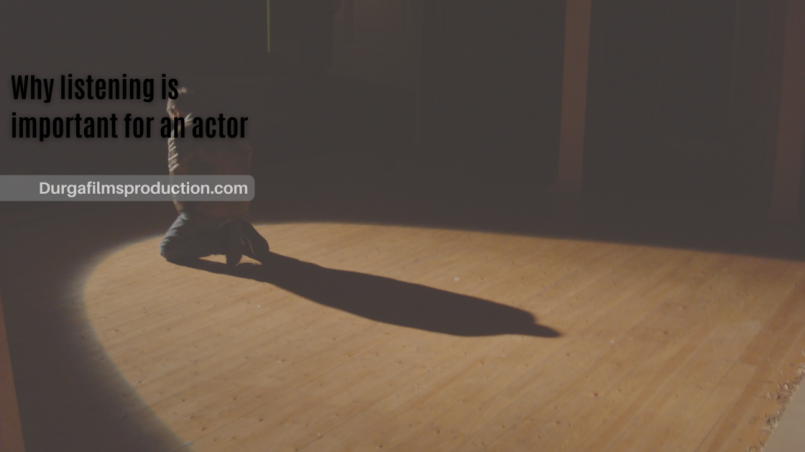Today we are going to talking about Why listening is important for an actor. Listening is one of the cornerstones of acting, yet it is often overlooked as one of its foundational skills. Although speaking is sometimes associated with acting, what sets great actors apart is their capacity for listening—they can fully immerse themselves in their characters’ world, react sincerely and powerfully, and produce performances that captivate audiences through practicing active listening. We shall explore why listening is such a vital skill in this document.
Jump to
- Recognizing the subtleties in the screenplay
- Gaining understanding and empathy
- Developing a sense of improvisation
- establishing a solid rapport with scene partners
- Behaving honestly and immediately are important parts of life.
- Conclusion
Recognizing the subtleties in the screenplay
Performers need to be keenly aware of the nuances and subtext of any script in order to effectively deliver it. A performer can pick up on subtleties of conversation, subtext, and emotions by paying attention to what fellow performers say; this knowledge improves performance as an overall whole by helping actors deliver their lines with appropriate emphasis, timing, and tone.
Gaining understanding and empathy
Actors can expand their empathy and understanding of their characters and the worlds they inhabit through listening. Acquiring knowledge of different perspectives, feelings, and intentions allows actors to create engaging performances by depicting characters with honesty and depth.
Developing a sense of improvisation
Actors must have the ability to improvise quickly in response to changing circumstances, which is an integral component of acting. To expand on each other’s ideas and build seamless scenarios through improvisational acting practices, actors need to actively listen to one another. By practicing active listening, actors can sharpen their improvisational skills while also becoming more versatile on stage or camera.
establishing a solid rapport with scene partners
Successful collaborations require effective communication, and acting is no exception. Actors can build trust with their scene mates by listening carefully to what each one says, which will result in more engaging, realistic performances on stage or film, not to mention improved chemistry between cast and crew members.
Behaving honestly and immediately are important parts of life
Actors’ performances become more spontaneous and realistic when they are able to respond honestly in the moment, acting upon cues by carefully listening to scene mates, which allows them to respond in ways that feel real and truthful. To maintain the integrity of characters as well as engage audiences, performers need to remain focused and present while performing.
Conclusion

Actors need to be attentive listeners because it helps them build rapport, be empathetic, respond authentically, improve improvisational abilities, and grasp the subtle nuances of scripts. By honing their listening abilities, actors can hone performances that audiences remember by strengthening narratives and performances that leave an impactful impression. Attentive listening is truly the cornerstone of acting.


